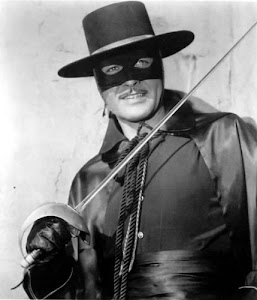In the last part of this post, I mentioned my perception of an anti-Christian bias on the part of Law & Order’s writers and producers. I have to ask, is the general public’s perception of Christians as bad as their portrayal on TV? I can’t believe it is, but it brings up the question of the church’s function in the Kingdom of God.
The kingdom has an already but not yet nature, in that it is a present reality—alive in the hearts of Christ followers everywhere, and still it has not yet come in its fullness, and will not until its consummation at the return of Christ. What the kingdom is and will be, should be modeled by the church here and now.
Bertil Ekstrom, Executive Director of the World Evangelical Alliance, acknowledges the already but not yet nature of the kingdom and insists the kingdom could be more present if the church understood its power and behaved in a manner consistent with being its citizens. [1] When the church acts like the church, it draws souls into the kingdom. C. S. Lewis wrote: "When we Christians behave badly, or fail to behave well, we are making Christianity unbelievable to the outside world." [2] The church is a herald, a witness, a window to the kingdom.
In his book God’s Redeeming Story, Richard Willowby writes: “The only way in which the world can recognize itself to be the world and not the church is for the church’s witness to be faithful and healthy. When that witness lacks faithfulness, the body becomes unhealthy. When the body becomes unhealthy, it acts in ways that ultimately confuse the world. A confused world finds it easy to turn its eyes away from the Christ toward whom the body must ultimately point if it is to be faithful to him.” [3]
As chief witness it is the church’s task to point the world to the kingdom. The church is intended to be a living reality of what the kingdom will be like in eternity. When the church acts just like the world, bickering among its members rather than celebrating the unity we have been gifted with, the world says, “Oh; that must be what the kingdom is like.” When the church withdraws into its protective stance to keep the outcast at arm’s length, the world says, “Oh; that must be what the kingdom like.” When the church endorses, at least by its silence, the exploitation and brutalization of oppressed peoples, the world says, “Oh; that must be what the kingdom is like.” And when the church shows preference to the powerful and the beautiful, and represses the weak, the world says, “Oh; that must be what the kingdom is like.”
What the world sees in the church is what the world understands to be the truth of the kingdom. Whether or not the world is drawn to desire the kingdom depends on the character and actions of the church. When the church acts as the church should act, it clearly points the world in the direction of the kingdom. When the church reaches out in love to the poor, the sick, the prisoner, and the outcast; when the church lives in obedience and stands for the truth and against injustice; when the church recognizes the equality of all Christians whether they are majority or minority, wealthy or poor, male or female, the world says, “Oh; that must be what the kingdom is like.”
[1] Bertil Ekström, “The Kingdom of God and the Church Today,” Evangelical Review of Theology 27, no. 4 (2003), 295.
[2] C.S. Lewis, Mere Christianity rev. ed. (San Francisco: HarperSan Francisco, 1952), 208.
[3] Merle D. Strege and Richard L. Willowby, God’s Redeeming Story (Anderson: Warner, 1996), 157.
Subscribe to:
Post Comments (Atom)




No comments:
Post a Comment